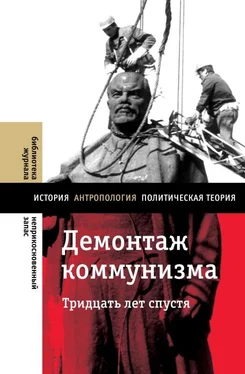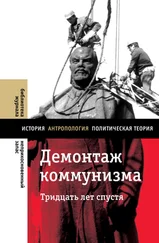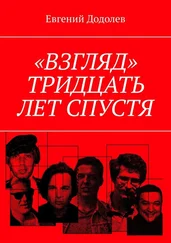Gel’ man V., Ryzhenkov S. Local Regimes, Sub-National Governance, and the «Power Vertical» in Contemporary Russia // Europe-Asia Studies. 2011. Vol. 63 (3). P. 449–465.
Reuter O. J., Robertson G. B. Subnational Appointments in Authoritarian Regimes: Evidence from Russian Gubernatorial Appointments // Journal of Politics. 2012. Vol. 74 (4). P. 1023–1037.
Frye T., Reuter O. J., Szakonyi D. Political Machines at Work: Voter Mobilization and Electoral Subversion in the Workplace // World Politics. 2014. Vol. 66 (2). P. 195–228.
Gel’ man V. Authoritarian Russia.
Kudelia S. The House that Yanukovych Built // Journal of Democracy. 2014. Vol. 25 (3). P. 19–34.
Fisun O. The Future of Ukraine’s Neopatrimonial Democracy // PONARS Policy Memos. 2015. № 394; http://www.ponarseurasia.org/memo/future-ukraine-neopatrimonial-democracy (доступ 29 января 2021).
Bueno de Mesquita B., Smith A. The Dictator’s Handbook.
Hedlund S. Russian Path Dependence. London: Routledge, 2005.
Kotkin S., Beissinger M. R. The Historical Legacies of Communism: An Empirical Agenda // Historical Legacies of Communism in Russia and Eastern Europe / M. R. Beissinger, S. Kotkin (eds). Cambridge: Cambridge University Press, 2014. P. 7.
Ibid. P. 16.
Gaddy C. G. Room for Error: The Economic Legacy of Soviet Spatial Misallocation // Historical Legacies of Communism in Russia and Eastern Europe. P. 52–67.
Gel’ man V. Political Foundations of Bad Governance in Post-Soviet Eurasia: Toward a Research Agenda // East European Politics. 2017. Vol. 33. № 4. P. 496–516.
Huskey E. Legacies and Departures in the Russian State Executive // Historical Legacies of Communism in Russia and Eastern Europe. P. 111–127.
Taylor B. From Police State to Police State? Legacies and Law Enforcement in Russia // Historical Legacies of Communism in Russia and Eastern Europe. P. 128–151.
Denzau A., North D. C. Sharing Mental Models: Ideologies and Institutions // Kyklos. 1994. Vol. 47 (1). P. 3–31.
Gel’ man V. Political Foundations of Bad Governance in Post-Soviet Eurasia.
Gel’ man V. Political Foundations of Bad Governance in Post-Soviet Eurasia.
Way L. A. Pluralism by Default.
Рогов К. Крымский синдром: механизмы авторитарной мобилизации // Контрапункт. 2015. № 1; https://www.ponarseurasia.org/sites/default/files/rogov_countepoint1_0_0.pdf (доступ 29 января 2021).
Gorenburg D. P. Minority Ethnic Mobilization in the Russian Federation. Cambridge: Cambridge University Press, 2003.
Goode J. P. The Decline of Regionalism in Putin’s Russia: Boundary Issues. Abingdon: Routledge, 2011.
Smyth R., Soboleva I. Looking beyond the Economy: Pussy Riot and the Kremlin’s Voting Coalition // Post-Soviet Affairs. 2014. Vol. 30 (4). P. 257–275; Robinson N. Russian Neopatrimonialism and Putin’s «Cultural Turn» // Europe-Asia Studies. 2017. Vol. 69 (2). P. 348–366.
Way L. A. Pluralism by Default.
См.: Brownlee J. Hereditary Succession in Modern Autocracies // World Politics. 2007. Vol. 59 (4). P. 595–628. Острое осознание постсоветскими элитами подобных перспектив создает у них мощные стимулы вести себя как «кочевые бандиты» ( Olson M. Dictatorship, Democracy, and Development. P. 567–576.) и чрезвычайно способствует различным проявлениям «недостойного правления» ( Cooley A., Heathershaw J. Dictators without Borders; Gel’ man V. Political Foundations of Bad Governance in Post-Soviet Eurasia).
Hale H. E. Patronal Politics.
Soldatov A., Borogan I. The Red Web: The Struggle between Russia’s Digital Dictators and the New Online Revolutionaries. New York: Public Affairs, 2015.
Gel’ man V. The Politics of Fear.
Robinson N. Russian Neopatrimonialism and Putin’s «Cultural Turn».
Davenport C. Multi-Dimensional Threat Perception and State Repressions.
Geddes B., Wright J., Franz E. Authoritarian Breakdowns and Regime Transitions: A New Data Set // Perspectives on Politics. 2014. Vol. 12 (2). P. 313–331.
Gel’ man V. Authoritarian Russia.
Идейные факторы играют в постсоветской политике сравнительно незначительную роль ( Hanson S. Post-Imperial Democracies: Ideology and Party Formation in Third Republic France, Weimar Germany, and Post-Soviet Russia. Cambridge: Cambridge University Press, 2010; Hale H. E. Patronal Politics) – вероятнее всего, вследствие политических уроков, извлеченных из неудач Горбачева, который искренне верил в возможность обновления социализма.
Beyond the Euromaidan: Comparative Perspective of Advancing Reform in Ukraine / H. E. Hale, R. W. Orttung (eds). Stanford: Stanford University Press, 2016.
Bunce V., Wolchik S. Defeating Authoritarian Leaders in Postcommunist Countries. Cambridge: Cambridge University Press, 2011.
Way L. A. Pluralism by Default.
Przeworski A. Democracy and the Market. Р. 10.
Gel’ man V. Authoritarian Russia; Golosov G. V. Authoritarian Learning in the Development of Russia’s Electoral System // Russian Politics. 2017. Vol. 2 (2). P. 182–205.
Hale H. E. Patronal Politics.
Abrams N., Fish M. S. Policies First, Institutions Second: Lessons from Estonia’s Economic Reforms // Post-Soviet Affairs. 2015. Vol. 31 (6). P. 491–513.
Magyar B. Post-Communist Mafia State: The Case of Hungary. Budapest: Central European University Press, 2016.
Dawisha K. Putin’s Kleptocracy: Who Owns Russia? New York: Simon and Schuster, 2014; Hill F., Gaddy C. G. Mr. Putin: Operative in the Kremlin. Washington, DC: Brookings Institution Press, 2015.
Читать дальше
Конец ознакомительного отрывка
Купить книгу






